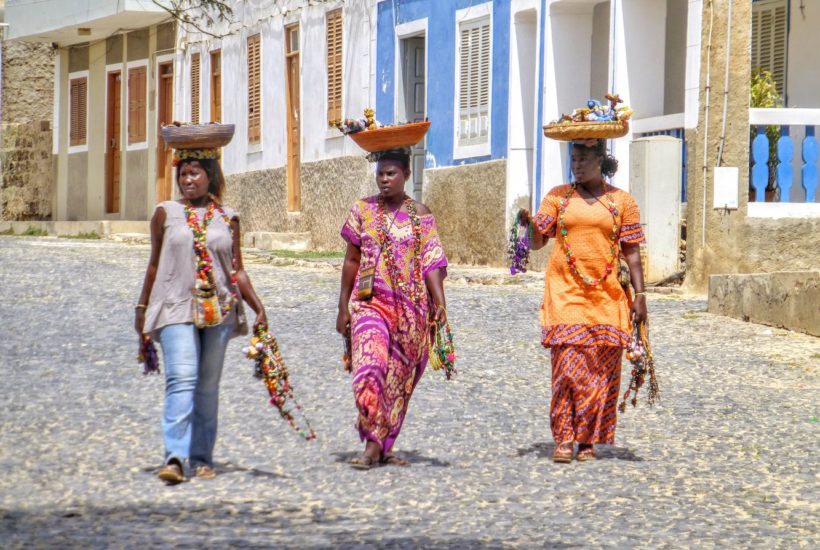Africa
Cape Verde and UN sign $17.5 million cooperation program
The joint work plan was signed on February 20th between Cape Verde and the United Nations (UN), in order to strengthen and accelerate the Sustainable Development Goals. The work plan has a budget of $17.5 million and it is a part of the five year cooperation period between the United Nations cooperation with Cape Verde with a total sum of $96 million (€88.7 million).

On February 20th Cape Verde and the United Nations (UN) have signed a joint work plan for 2020. The plan is valued at $17.5 million (€16.1 million) and will focus on strengthening institutions and accelerating Sustainable Development Goals.
The plan was signed in the city of Praia by the Minister of Foreign Affairs and Communities, Luís Filipe Tavares, and the resident coordinator of the United Nations System in the country, Ana Patrícia Graça.
News, analysis, and comment from the Born2Invest mobile app. The world’s leading global business and financial news, African news, crowdfunding, stock markets, fintech, biotech, and much more.
The work plan and a budget of $17.5 million
Budgeted at $17.5 million, the work plan for this year is part of the United Nations cooperation with Cape Verde for the five-year period between 2018-2022, which is $96 million (€88.7 million).
The UN coordinator said that $13.5 million (€12.4 million) of the annual plan has already been made available by its 14 agencies and main partners in the country, while the remaining $4 million (€3.6 million) will still be mobilized.
The aim is to strengthen the institutional and operational capacities of the State of Cape Verde
The UN coordinator hopes that more resources will be mobilized than planned with other partners and stressed that the plan will be adjusted according to the reality on the ground. Cape Verde is bidding for the Global Fund for Sustainable Development Objectives (ODS), with two proposals of around $8 million (€7.4 million).
The annual work plan will strengthen the institutional and operational capacities of the State of Cape Verde, the sustainable management of natural resources and biodiversity, the implementation of measures for economic and sustainable growth, governance and its modernization, the strengthening of justice, the development of human capital and the efficient use of resources.
The UN coordinator said that this is an “ambitious, solid, but realistic work plan,” which, unlike the previous two years, concentrates efforts and resources on the environment and prosperity axes.
“Here the great challenge is to ensure that economic growth is effectively inclusive and sustainable, and geared towards solutions that preserve and protect the environment, but also economic and social sustainability,” said Ana Patrícia Graça.
Sustainable development and emphasis on strengthening transparency
The UN representative called for Cape Verde to implement the plan successfully, with ongoing monitoring, accountability, and results, with emphasis on strengthening transparency and coordination of partnerships for sustainable development.
For his part, the Minister of Foreign Affairs and Communities considered that the country and the United Nations are to be congratulated for having prepared the action plan in a good time.
The head of Cape Verdean diplomacy stressed that the plan is the “proof of confidence” that the countries and institutions have in Cape Verde and aims to accelerate the implementation of ODS in the country.
“We will continue to work with full responsibility, to continue to deserve this trust from the international community,” guaranteed Luís Filipe Tavares, who among the axes highlighted the strengthening of institutional reforms. He added that “a country with strong institutions means a country with a future.”
“Governments pass, institutions remain and Cape Verde wants to have increasingly strong institutions to ensure the sustainability of our country,” he noted. Contrary to the previous plan, which had an 80% implementation rate, Luís Filipe Tavares hopes that the program now signed will be fully implemented.
__
(Featured image by Belinda Fewings via Unsplash)
DISCLAIMER: This article was written by a third party contributor and does not reflect the opinion of Born2Invest, its management, staff or its associates. Please review our disclaimer for more information.
This article may include forward-looking statements. These forward-looking statements generally are identified by the words “believe,” “project,” “estimate,” “become,” “plan,” “will,” and similar expressions. These forward-looking statements involve known and unknown risks as well as uncertainties, including those discussed in the following cautionary statements and elsewhere in this article and on this site. Although the Company may believe that its expectations are based on reasonable assumptions, the actual results that the Company may achieve may differ materially from any forward-looking statements, which reflect the opinions of the management of the Company only as of the date hereof. Additionally, please make sure to read these important disclosures.
First published in Africa21Digital, a third-party contributor translated and adapted the article from the original. In case of discrepancy, the original will prevail.
Although we made reasonable efforts to provide accurate translations, some parts may be incorrect. Born2Invest assumes no responsibility for errors, omissions or ambiguities in the translations provided on this website. Any person or entity relying on translated content does so at their own risk. Born2Invest is not responsible for losses caused by such reliance on the accuracy or reliability of translated information. If you wish to report an error or inaccuracy in the translation, we encourage you to contact us.

-

 Business6 days ago
Business6 days agoDow Jones Breaks 50,000 as Bull Market Surges Amid Caution and Volatility
-

 Business2 weeks ago
Business2 weeks agoBattered, but Still Bullish on Gold & Silver
-

 Impact Investing4 days ago
Impact Investing4 days agoEU Backs 90% Emissions Cut by 2040 and Delays ETS2 Rollout
-

 Crowdfunding2 weeks ago
Crowdfunding2 weeks agoNewcleo Raises $85 Million to Advance Fourth-Generation Nuclear Reactors

























